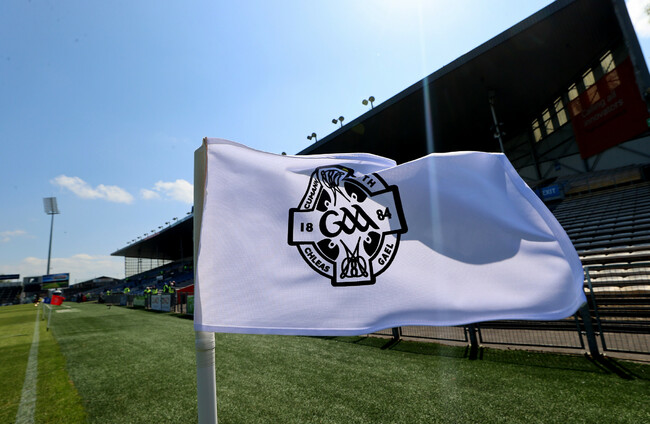I SPENT A portion of Sunday afternoon explaining the GAA to an Englishman.
He understood the games and had a decent grasp on how the competitions and different tiers operate. Societally though, having never lived in Ireland, he had not considered the breadth of this organisation’s influence.
“So, kind of like the Catholic Church,” he suggested, the GAA’s presence in most communities across the country remarkable to him. And in terms of geographical footprint, he can’t be far off – one wonders what the ratio of GAA pitches to Catholic churches now.
What the GAA has in terms of omnipresence, however, it lacks in the kind of omnipotence once held by the church. For all that the GAA serves a broad community, the games themselves still come down to my village, town or county against yours. Both the communal aspect and rivalries are essential.
It takes a particularly inflammatory topic then to engender consensus among GAA members. Recently, diving and cynical play have reemerged as issues plaguing Gaelic football, particularly, but hurling has not been unblemished either.
“It’s not a good thing for the game,” multiple All-Ireland winner Dean Rock insisted recently, “it’s not good for young kids looking in and seeing this, any sort of touch and fellas going down.”
Like the Catholic Church in such instances, prominent figures from the GAA media landscape have already set about identifying those who are to blame; where the Church had Protestants, angered GAA members have the Premier League.
*****
The Premier League is home to “underworked and over-pampered” players according to former Kerry footballer Marc Ó Sé in his Mail on Sunday column. It is with this privileged lot that the GAA can locate the origins of its diving problem.
This isn’t a new or even controversial opinion at this point. As Christy O’Connor succinctly put it in the Sunday Times this weekend, “the GAA has always prided itself on being different to soccer… Gaelic football would never equate itself to some of the unethical and immoral traits of soccer simulation.”
Generally, arguments such as Ó Sé’s would have you believe that impressionable inter-county players and coaching teams are at the mercy of these professionals acting in bad faith. As if to say that no Gaelic footballer or hurler could conceive of acting beyond the remit of what is right and proper.
And while soccer undoubtedly operates within a different framework to Gaelic games, this is a truly international framework that draws on influences from across the world. It is a much more multifaceted sport than the relatively minor games of Gaelic football or hurling.
*****
No doubt about it though, diving and other forms of cynical play are a nuisance.
Whether they are on the rise in Gaelic games, or our increased ability to view and record games remotely means we are simply seeing more of what’s been always going on, it cannot be said for certain.
I do firmly believe that GAA members looking for the nefarious influence of soccer for a scapegoat need first acknowledge the susceptibility of its own playing personnel to doing what’s possible to gain an advantage, however.
And yet, there is something about the language surrounding this debate that disturbs me more. GAA partisans will openly draw the terms of engagement on this issue along ethical and moral lines.
Former Kerry footballer Darran O’Sullivan said as much on The GAA Hour podcast, insisting that any offending player must be “shamed, embarrassed, then you get on with it, and you learn your lesson.”
Tipperary’s Shane McGrath suggested that the toxicity of social media could be well serviced as a deterrent for possible divers: “Social media can often be poison after games… but in this case I actually feel it could be used for the greater good to help rid us of this behaviour.”
Closer to home for players, former Limerick hurler Shane Dowling believes that such behavior will win players no credibility among their peers: “It is embarrassing for you. People don’t go up and give you a clap on the back and say, ‘Well done, you got your man sent off…’”
Ultimately, to dive (once you’re caught diving, that is) is to become a pariah.
There’s some sense to what’s said above, but if public shaming is ultimately viewed as the solution to this problem, claims regarding the higher moral authority of Gaelic games come to sound even more preposterous.
Incentives for players to act correctly on a GAA pitch cannot not be reliant on the understanding that transgressive behaviour will see the community devour the individual.
Because after all, rivalries and communities go hand-in-hand across the GAA.
While some may claim that a victory tainted by diving or cynicism is no victory at all, most of that same community which could destroy a player will more easily venerate a winning team and put any bad behaviour down to the cost of doing business.
Get instant updates on the Allianz Football and Hurling Leagues on The42 app. Brought to you by Allianz Insurance, proud sponsors of the Allianz Leagues for over 30 years.

